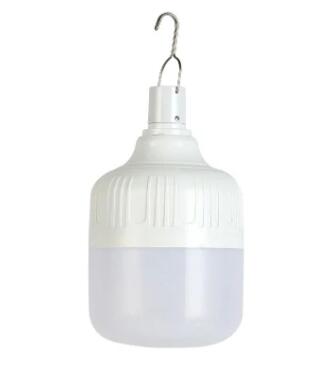Are there any special disposal or recycling considerations for LED bulb lights
2023-10-25
There are specific disposal and recycling considerations for LED bulb lights, even though they are generally considered more environmentally friendly than some other lighting technologies like fluorescent bulbs, which contain hazardous materials like mercury. Here are some important points to keep in mind when it comes to disposing of or recycling LED bulbs:
1. Recycling Programs: Many regions have established recycling programs for electronic waste, including LED bulbs. Check with your local government or recycling centers to see if they accept LED bulbs. Some retailers and manufacturers may also have recycling programs in place.
2. Do Not Throw in the Trash: It's not advisable to throw LED bulbs in the regular trash. Because they contain electronic components, they should be disposed of properly to prevent environmental contamination.
3. Separation of Components: Some LED bulbs have components that can be recycled separately. For instance, the aluminum heat sink, plastic housing, and electronic components can often be separated and recycled. Follow guidelines from recycling facilities on how to disassemble the bulb safely.
4. Hazardous Materials: While LEDs do not contain hazardous materials like mercury, they may contain other potentially harmful substances, such as lead or certain rare earth elements. Proper disposal and recycling help prevent these materials from leaching into the environment.
5. Retailer Take-Back Programs: Some retailers, especially those that sell LED bulbs, may have take-back programs or collection points for old bulbs. You can inquire with these retailers about proper disposal options.
6. Manufacturers' Guidance: Manufacturers may provide information on their websites or packaging about how to recycle their specific LED bulb models. Follow their recommendations for responsible disposal.
7. e-Waste Recycling Centers: Many electronic waste recycling centers accept LED bulbs along with other electronic devices. These centers have the expertise to handle electronic components safely.
8. Transportation and Storage: When transporting or storing old LED bulbs for recycling, handle them with care to prevent breakage, as they may contain glass components. Broken bulbs should be cleaned up using proper safety precautions.
9. Local Regulations: Be aware of local regulations and guidelines regarding the disposal and recycling of electronic waste, as they can vary by region.
10. LED Disposal Bags: Some companies offer disposal bags designed for LED bulbs to contain any potential contaminants and prevent breakage during transportation. These bags can be useful for safe disposal.
Proper disposal and recycling of LED bulbs not only reduce the environmental impact but also help recover valuable materials and reduce electronic waste. Before disposing of LED bulbs, it's advisable to check with local authorities, recycling centers, or the manufacturers for specific guidelines and options available in your area.



